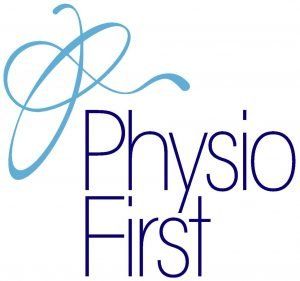Healthier Workplace
17 June 2020
It turns out that a lack of exercise in our lives is a silent killer. The World Health Organisation lists physical inactivity as the fourth biggest risk factor for death in adults across the world.
The latest research shows when it comes to heart disease, leading a sedentary life is as great a risk factor as smoking and obesity. In fact, inactivity in terms of disease risk, is more dangerous than being overweight.
If you spend long periods of time sitting, this is particularly bad news, as it increases your risk of heart disease, obesity, diabetes and cancer. The most current research has shown that even normal weight individuals that are inactive, are at risk of developing disease. There is a molecular pathway that is essential to burning fats, that shuts down with inactivity, and that subsequently increases your risk of developing heart disease.
And unfortunately you can’t bank the benefits of exercise from your youth, hoping it will help you 40 years down the line. The ideal scenario is to have been active throughout your lifespan, but research has shown that your health can benefit from physical activity at any age, meaning it doesn’t matter when you start, as long as you start!
Physical activity performed regularly, can help to prevent and manage over 20 chronic medical conditions. These include coronary heart disease, stroke, type 2 diabetes, cancer, obesity, mental health problems and musculoskeletal conditions.
And the good news is that we can combat the negative effects of prolonged sitting (total of 8 hours or more) with just 60-75 minutes of moderate intensity physical activity a day.
The reality is that hectic schedules can make it seem impossible to fit workouts into your busy week. The prospect of packing a gym bag, trudging to your local gym, working out, showering, changing, and trudging back to where you came from, can feel like a lot of effort.
But when we neglect exercise, we not only put both our physical and mental health at risk, but we also negatively impact our productivity and effectiveness at work.
And you would be surprised at the number of opportunities there are in a working day, to increase your activity levels. This doesn’t have to mean running or cycling to work, although that’s great if you can, but you can in fact accumulate activity that is beneficial to health, in lots of different ways during the day.
Which is why we’ve put together a collection of resources to help you achieve this.
At the following link you can download leaflets, exercise handouts and infographics on the following topics.
– 17 Ways to Be More Active at Work
– Thinking on your Feet – Why it Pays to Be Physically Active at Work Client Newsletter
– Stretching Exercises for the Workplace
– Strengthening Exercises for the Workplace
– Why Posture Matters
– Optimal Desk Posture Infographic
– Carpal Tunnel Infographic
– Preventing and Treating Carpal Tunnel Syndrome
– Carpal Tunnel Rehabilitation Exercise Sheet
Click here to download the resources http://bit.ly/2XqiUD7
As Physio therapists we can help with a wide range of issues caused by long periods of sitting at a desk, including back and neck pains, tingling in your hands, carpal tunnel syndrome, even regular headaches experienced at work. Please get in touch if you need advice and I hope you find these resources useful.

Inevitably, with the speed everything was shut down due to Covid 19, most people were not set up to work from home immediately, and many patients have been asking for some advice regarding their desk arrangement. I would highly recommend, at the very least, the purchase of a separate keyboard and mouse. You will then be able to achieve a good supported position of your equipment on the desk.

March is our customer satisfaction month here in clinic, and we appreciate any comments you leave for us as we strive to achieve the best with each and every patient of ours. A lovely thank you from a recent patient and proof that it is always so important to ask what normal activity is for each individual. A huge thank you to Matt for playing an instrumental part in my rapid recovery from a lower back injury earlier this month, just in time for a rock climbing trip to Costa Blanca in Spain. Two weeks before the trip, an old injury flared up, leaving me barely able to stand let alone do anything else and worried I would have to cancel the entire trip. However, within just two physio sessions with Matt, I felt almost completely back to my old self. On the trip, my lower back wasn’t even an issue – and I actually climbed my highest grade yet!

Due to expansion and increasing demand, our friendly and well established private physiotherapy practice, specialising in musculoskeletal health and rehabilitation, is looking for an enthusiastic and experienced musculoskeletal physiotherapist with exceptional clinical and communication skills to join our team. We are looking for a physiotherapist who is motivated and dynamic, with at least 4 years experience to join us. Excellent manual therapy and rehabilitation skills are essential, with acupuncture being an advantage. We also offer Clinical Pilates classes in clinic and experience in teaching Pilates would be very beneficial. We believe that the patients in our care deserve highly skilled treatment delivered with commitment and drive, excellent communication and a warm and caring manner. This is a full time employed post with hours that can be flexible and will include some evenings, and possibly Saturday mornings. We are a committed team that work hard and perform well together for the benefit of each patient. In return you will be rewarded with a generous salary package, company pension, paid holiday, support and training for your career progression, in addition to the benefits and stability of employment. You must be a member of CSP and HCPC. Our lovely clinic is modern, light and well equipped and is just 5 minutes walk from Rickmansworth tube and railway station, and Rickmansworth Town. http://www.physio-rehab.co.uk Please send your CV with a covering letter explaining why you would like to be part of our team. Job Types: Full-time, Contract

This week and month we are focussing on back pain. Currently we are in the middle of back pain awareness week (7th-11th October). This is something we at the physiotherapy and rehabilitation clinic are really encouraged by. As physiotherapist we are always trying to promote health and do so by educating our patients about the implications of staying active. This is something that many of us find difficult especially if you have a sedentary job and lifestyle. Similarly if you’re working as a tradesperson and performing many manual tasks it’s about being aware and understanding the little changes you can make to protect and maintain a healthy spine. Work related musculoskeletal injuries (WRMSI) are at an all-time high, back pain is the most commonly injured area and we know that 80% of people are likely to suffer from at least one episode of back pain in their lifetime. An episode of back pain is therefore not out of the ordinary for most of the population. Whether you’ve had or have not had surgery on your spine, physiotherapists play a vital role in helping to speed up your recovery as quickly as possible. Our expert physiotherapists at the Physiotherapy and Rehabilitation clinic Rickmansworth have helped many people manage and resolve their pain. We also work closely with some of the best orthopaedic consultants around the country with links to back specialists in the private sector and the national orthopaedic hospital in Stanmore. Many of whom visit us to deliver learning and development presentations to staff throughout the year. The evidence suggests the sooner you seek medical help post onset of symptoms the quicker your return to full function will be. If you ignore and leave your symptoms then inevitably it will take much longer to rectify. Later this month we will be publishing another article where we interview a former patient at our clinic who I’m pleased to say is managing his back condition and has returned full time to a manual occupation. It will be great to get his thoughts, views and opinions for you all to read, keep your eye out for this! The department for health has recommended that each individual should complete a minimum of 150 minutes of moderate exercise a week. In addition to this figure they have highlighted the importance of extra strength and conditioning sessions (of which we should be doing 30 minutes twice weekly)on top of the 150 minutes already mentioned. This amount at first is quite daunting! How can you achieve this and find the time to complete all the other things that go with modern day life? On one hand finding enough time is challenging, on the other hand if you’re suffering from back pain it can leave you feeling anxious about exercising the right amount. It can be very difficult to know when to start. Professional help is the best way to get you started and rebuilds your confidence to move safely. Hopefully this article can help you with some of the answers to start making little changes to your routine. It’s a well-known fact that Pilates can be incredibly good for your back and is endorsed by many of our back specialists. An hour of Pilates once a week counts towards the recommended weekly exercise mentioned earlier. We offer several clinical Pilates classes running across the week at different times and levels (beginners, intermediate, advanced). Our physiotherapists have qualifications with the Australian Physiotherapy and Pilates Institute. We have members that have attended the class for over two years and it has now become a way of life for them in order to manage their back pain and stay active. Patients want to look after their back and Pilates ticks all the boxes; it keeps their spine flexible, strong and robust to cope with day to day demands. We have many patients that have previously had surgery on their spine and those that have not so don’t think that once you have a procedure you cannot participate in some capacity. It is a suitable option for most people and 1:1 sessions are available too. NICE guidelines recommend that if you have back pain you should avoid resting completely. They advise you should “continue (when able) with your normal activities” (NICE 2016). In other words moving little and often trying to stay as active as you can within pain tolerance. Go frequently for little walks; avoid staying in a position for longer than 20-30 minutes. The full guidelines are available on the NICE website. Back pain awareness week also gives us a chance to address more serious pathology which can present as back pain. Men are recommended to have a routine prostate check in their 40s as an enlarged prostate can masquerade as low back pain. Guys if you haven’t- do so! It takes less than 30 seconds with your GP. Dr Thangarajah from Gade surgery came to visit us and emphasised the importance of raising awareness of getting this simple test that could potentially save your life. Similarly if your symptoms include night sweats, a change in bladder/bowel habits, pins and needles in both legs and genitalia, constant unremitting pain and/or rapid unexplained weight loss then seek medical attention immediately. Lastly, another big emphasis in October is the Stoptober campaign. This is aimed to challenge people to refrain from alcohol for the entire month and to encourage people to stop smoking completely or move to nicotine replacement alternatives in order to live a healthier life. We all know the benefits of quitting smoking to cardiovascular health but it also has a huge impact on back pain. The small blood vessels which go into each vertebrae help maintain status quo and health of each segment. If blood flow is compromised then less oxygen and nutritional benefit is reduced and your spine is more at risk of pathology. Less blood flow also means when an injury occurs health times can be longer. See the NHS link below which goes into more detail and the Stoptober twitter account for more information, you can create an account on the Stoptober page and they will support you through cessation with daily emails and initiative to keep you motivated if you’re thinking about quitting. Thank you for taking the time to read this article from the team at the Physiotherapy & Rehabilitation Clinic Rickmansworth. If you need any further information or have any further questions please don’t hesitate to contact us via email or telephone: Email: reception@physio-rehab.co.uk Phone: 01923 897514 http://backcare.org.uk/?events=back-pain-week-2019-7th-to-12th-october https://twitter.com/stoptober?ref_src=twsrc%5Egoogle%7Ctwcamp%5Eserp%7Ctwgr%5Eauthor https://www.nhs.uk/news/lifestyle-and-exercise/smoking-increases-risk-of-chronic-back-pain/

Welcome to our Summer 2019 Newsletter Summer is finally here and so far some of us have experienced the hottest day ever on record. We have seen sweltering temperatures as well as torrential downpours, some of which may be a sign of climate change. One thing we are certain will not change is the warm, friendly welcome and the excellent care you will receive when visiting The Physiotherapy and Rehabilitation clinic. Whether you are having a staycation, vacation or a restful time at home, the team at the clinic wish you all ‘Happy Holidays’. P.S. Don’t forget your sunscreen when out and about! Work Experience Students Past and Present We continue to welcome and offer work placements to students from several of our local schools. The experience gives the students a good insight into how a busy practice operates and also assists in their progression of career choices. We were delighted to receive an update from one of our students who completed his work experience placement at the clinic in 2018. Here’s what Mario had to say: ” I would like to take the opportunity to thank you for your time and taking me under your wing a little over a year ago. The knowledge that I gained from the 2 day placement at your clinic has stayed with me to this day and my experience at your clinic was something I was able to talk passionately about during the interview process to get into University! So here I am 1 and a half years later studying Physiotherapy at the University of Brighton! And I am loving it! I have learned so much in a year and it’s scary to think that I only have 2 years of University left, and what’s even scarier is that this time next year I will be on placement!” Thank you to all our lovely patients who gave consent for our students to sit in during their consultations. OA Classes The OA hip and knee class was set up last year to help our patients who are either waiting for surgery, had surgery or are looking to avoid surgery. We know the value of exercising and many of the orthopaedic consultants we work with share the same view. Strengthening the key muscles around the hip and knee joints can help to delay or avoid surgery. But if surgery is necessary, the recovery post-operatively is much quicker, less pain control medication is needed and patients return to a good quality of life faster following a pre-habilitation programme. The changes to the muscles begin to occur in the first 6-8 weeks and after this time the muscles can develop if appropriately loaded. This article in Arthritis Foundation talks about Pre-Hab; https://www.arthritis.org/living-with-arthritis/treatments/joint-surgery/preparing/prehab-surgery.php Les Mead also shares his views of coming to the OA Class: “I have been attending The Physiotherapy and Rehabilitation Clinic in Rickmansworth for many months. I have Osteoarthritis in both of my knees, the left one was very painful and I had a half knee replacement operation about 4 years ago. 6 months ago my right knee started to become extremely painful, it was just like the left one and I was convinced that I needed that knee replaced also. Following a consultation with an orthopaedic surgeon, I was advised to start an exercise regime, using Physio App. In addition to this I also started a Hip and Knee Osteoarthritis exercise course at The Physiotherapy and Rehabilitation Clinic . After attending for 6 weeks I started to feel a definite improvement. Three months later I continue to attend and definitely do not now need a knee replacement.” Recent Training It was a pleasure to welcome two leading foot and ankle consultants to our clinic this Summer. Mr Andy Goldberg (Wellington Hospital) and Mr Matt Welck (Royal National Orthopaedic Hospital) came to share their expert knowledge about conditions affecting the lower limb and the specialist orthopaedic services they offer patients. Close communication with surgeons and other specialities ensure we can offer our patients the best care, optimising their treatment experience. In addition, we welcomed Mr Phillip Howath from St John and St Elizabeth’s hospital for our annual basic life support training. He certainly made this enjoyable and we all feel well refreshed on this topic. Regular training helps to keep our patients safe at all times. Moor Park 10K Funrun Again, we are pleased to be supporting The Lynda Jackson Macmillan Cancer Centre by providing fundraising pre and post run sports massage at the fun run on 29th September 2019 at Merchant Taylors School. Please do call by and see us. We really do want to raise as much money as we can for this wonderful cause. New Staff Member We are delighted to welcome Karen Purnell to the Administration Team at the clinic. Karen has previously worked as a volunteer for various charities and most recently within a respite Day Centre. In her spare time, Karen enjoys fitness and gardening. Karen will be joining the team at the beginning of August 2019. http://www.moorpark10k.org.uk/ Fond Farewell After 8 years at the Physiotherapy and Rehabilitation Clinic it is with great sadness that we wave goodbye to our Louise. I know our patients will have benefited from her efficient running of all things administrative, and also from her caring and empathetic manner. We will all miss her encyclopaedic knowledge of Rickmansworth, places to go in London and, of course, Elton John! I’m sure she will be in for a cuppa (she knows the kettle is always on) and will be spotted frequently in the high street with her dog Cassie. Thank you Lou for all of your hard work and we send you our love and best wishes for your adventures to come. P.S. Thank you to all our patients who signed Louise’s leaving card. She was quite overwhelmed with all of the good wishes from everyone.








